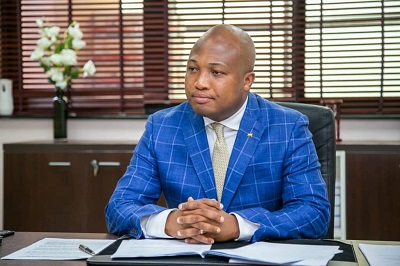
Member of Parliament for North Tongu, Samuel Okudzeto Ablakwa, has outlined how a future National Democratic Congress (NDC) government plans to finance the proposed ‘No-fees policy’ for first-year university students. He explained that the Ghana Education Trust Fund (GETFund) would be a key source of funding for this initiative.
This clarification comes in response to questions from Ghanaians about how John Mahama, the NDC’s 2024 presidential candidate, intends to fund the policy if elected. The policy was unveiled during the launch of the NDC’s Youth Manifesto, with Mahama stating that it aims to alleviate the financial burden on parents paying for their children’s education.
Critics have pointed to the country’s current economic challenges, suggesting that Mahama’s promise might be an attempt to win votes without a solid financial plan. However, during an interaction on Joy FM’s Newsfile on Saturday, August 17, 2024, Ablakwa defended the policy. He stated that the Mahama administration would uncap GETFund to secure additional funds necessary for the policy’s implementation.
Ablakwa noted that preliminary estimates indicate the policy would cost between GH₵250 million and GH₵300 million annually. He asserted that this amount could be raised if the current government’s capping law on GETFund is reversed.
“We are saying that two things must happen to the GETFund, we must uncap and we must stop this Daakye Bond and collateralisation. The incumbent government introduced this capping law and what that law has done is that all the statutory funds have created a ceiling so not all funds go to the agencies. So whether it is GETFund, NHIA, and District Common Fund etc. the capping has limited their funds,” he explained.
Mr Ablakwa further asserted that NDC MPs were astonished to learn that, despite GH₵7 billion being accrued into the GETFund, only GH₵3 billion was available for use due to the capping and obligations tied to the Daakye Bond.
The lawmaker further assured that the NDC has conducted thorough analysis and research, confirming that by removing the cap and eliminating collateralisation, the GH₵4 billion currently inaccessible would be freed up.
These funds, he said would then be channelled towards financing the policy to provide grants to all Level 100 students, ensuring broader access to tertiary education in Ghana.
Pulse





